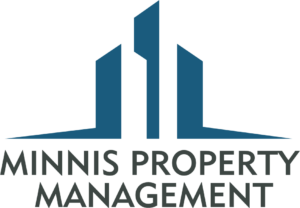A property manager plays a crucial role in protecting vacant commercial properties. Here are several reasons why having a property manager is important:
1. Security and Safety
Vacant commercial properties are often prime targets for vandalism, theft, and squatters. A property manager can implement security measures, such as surveillance cameras, alarm systems, regular patrols, or security personnel. They can also ensure that the property is properly secured, minimizing the risk of unauthorized access.
2. Routine Inspections and Maintenance
Vacant properties can fall into disrepair if not regularly maintained. A property manager conducts routine inspections to identify issues like water leaks, roof damage, or potential hazards before they become serious. They can also ensure that landscaping is maintained, and the exterior is kept up to avoid attracting negative attention.
3. Insurance Compliance
Vacant properties may require specific insurance coverage or have different terms than occupied properties. A property manager can help ensure that the property is adequately insured, comply with insurance requirements, and avoid potential issues with claims if something happens.
4. Preventing Squatters and Unwanted Tenants
Vacant buildings can attract squatters or illegal occupants. A property manager monitors the premises, ensuring that no one is occupying the space without permission. They can also work with your legal representative to evict squatters, if necessary.
5. Handling Property Liabilities
If someone is injured on a vacant property, the owner may be liable for medical costs or other expenses. A property manager helps to reduce this risk by keeping the property well-maintained and free of hazards. They can also ensure that the property complies with local safety codes and regulations.
6. Keeping the Property Market-Ready
If you’re planning to lease the property in the future, a property manager can help ensure it remains attractive to potential tenants. They can also oversee repairs and improvements that may be necessary to meet current market demands or attract high-quality tenants.
7. Dealing with Utilities and Bills
Vacant commercial properties still have ongoing utility costs like water, electricity, and gas. A property manager can monitor these services to ensure bills are paid on time, or in some cases, ensure that utilities are turned off to avoid unnecessary charges. They can also monitor any changes in service providers or the utility market.
8. Cost Control and Financial Management
A property manager can help reduce the costs associated with vacancy by finding ways to limit unnecessary expenses. They can negotiate with vendors for better prices on services like cleaning, landscaping, and repairs. They also help keep track of the property’s financials, ensuring that the owner stays on top of expenses related to the property.
9. Marketing and Leasing
If the property is vacant and available for lease, the property manager can help market the space to prospective tenants. They handle advertising, showings, and tenant vetting, making it easier for property owners to find reliable tenants quickly.
In summary, Minnis Property Management can help ensure that your vacant commercial property is well-maintained and secure. Our expertise reduces risks, protects the property’s value, and helps to keep costs manageable, ultimately providing peace of mind for the property owner.
